- HOME
- >
- 사업소개
- >
- 한국문학 번역ㆍ연구ㆍ출판지원
한국문학 번역ㆍ연구ㆍ출판지원
-

Fiction소설 | 낯선 시간 속으로(前 한국문학 번역지원사업 지원) Saisons d'exil
저자 이인성 ㅣ 역자 최애영,Jean Bellemin-Noël장 벨멩-노엘
출판사 France프랑스 아르마탕(Harmattan) ㅣ 출판일 2004
낯선 시간 속으로 Saison d'exil
이인성 作/ 최애영,장 벨멩-노엘 共譯/ 프랑스 아르마탕(L'Harmattan) 刊
작가 이인성은 몸에 익어 편안한 방식을 거부하고 힘들지만 독자적인 개성을 추구하는 글쓰기 방식으로 유명하다. 이 소설은 기왕의 소설문법을 과감히 깨뜨리는 실험적이며 자기반성적인 소설을 선보이는 이인성의 처녀 작품집이다. 한국의 대표적인 현대 소설 가운데 하나이면서 작가가 추구하는 소설기법이 프랑스 현대 누보로망 계열 작품들과 비교되는 요소를 많이 갖추고 있다. 작품집 안에는 4편의 독립된 중편이 들어있고 이들은 연속성을 띠기는 하나 연대순서와 상관없이 배열된 것이 특징적이다. 이인성의 작품 중 처음으로 번역되어 해외에 소개되는 것이다. 난해한 원작의 표현성을 가능한 한 그대로 살리려고 노력한 성실성과 필요한 곳에 자세한 설명을 붙여 작품의 내용을 불어권 독자들이 이해하기 쉽게 배려한 점이 돋보인다. 또한 프랑스의 저명한 불문학자이자 평론가인 장 벨멩-노엘이 공역자로 참여한 점, 프랑스에서 일어난 신소설기법인 누보로망 계열의 소설이라는 점 등 프랑스에서 주목받을 만한 요소를 두루 갖추고 있어 기대를 모으고 있다.
Saisons d'exil(Into Strange Times)
Yi In-Sung(Author)/ Choi Ae-Young, Jean Bellemin-Noël(Translator)/France:Harmattan,2004
Yi In-Sung is well known for his writing style, a style that objects to complacency and instead strains for the difficult but, ultimately, the inimitable. Saisons d'Exil a juvenalia, breaks away from past grammar, bringing out an experimental yet introspective novel into light. It is one of the few chosen books representative of the modern Korean novel and contains many elements comparative to the modern French nouvelle fiction. Of special note is the arrangement of the four separate medium-length stories which-albeit the textual continuity- reject chronological order. -
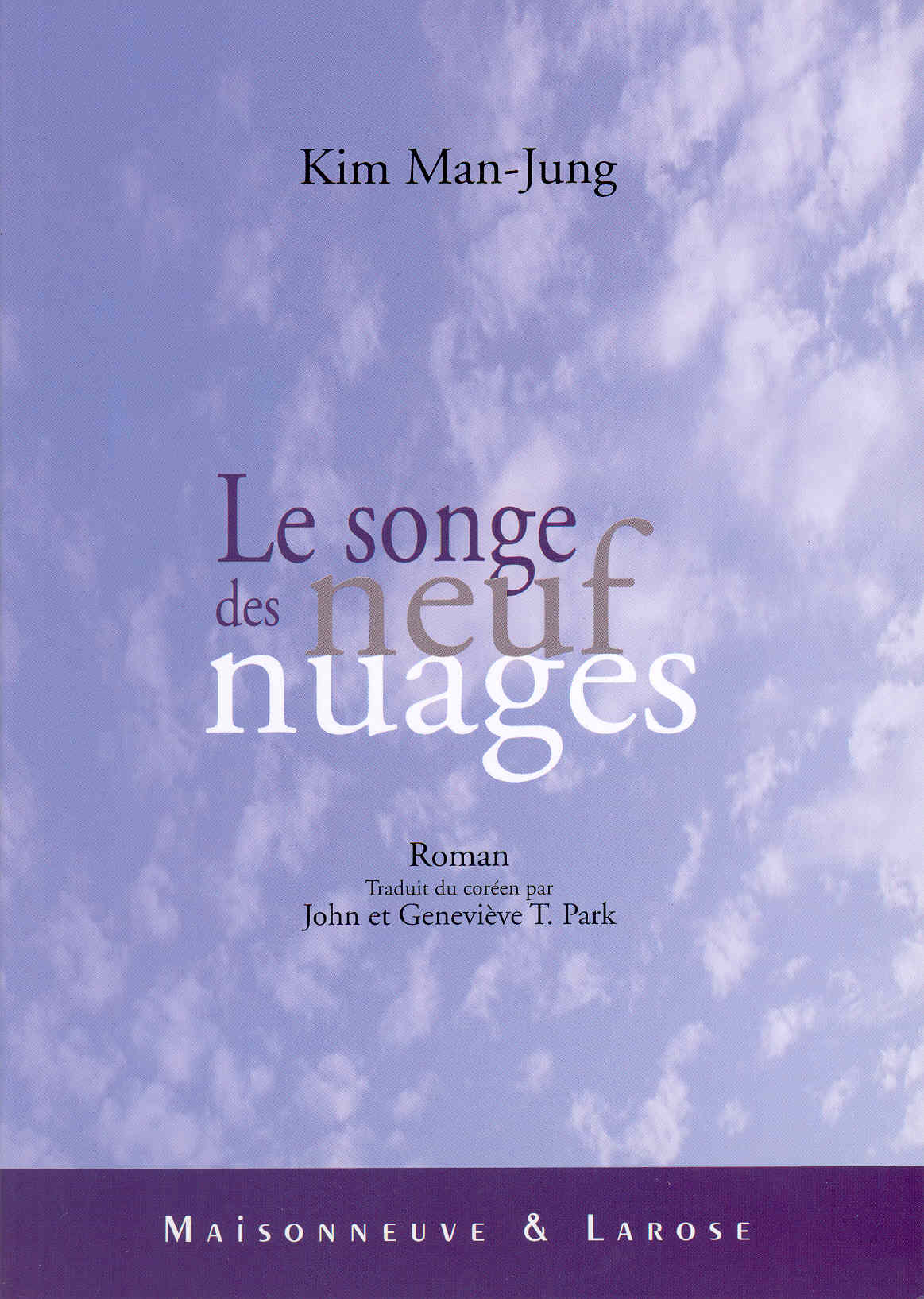
Classic고전 | 구운몽(前 한국문학 번역지원사업 지원) Le songe des neuf nuages
저자 김만중 ㅣ 역자 박전규,Geneviève T. Park즈느비에브 탐 박
출판사 France프랑스 메조뇌브(Maisonneuve&Larose) ㅣ 출판일 2004(2000 지원)
구운몽Le Songe des neuf nuages
김만중 作, 박전규·즈비니예프 탐박 共譯, 프랑스 메종뇌브 刊
조선 숙종 때 서포 김만중이 지은 장 편 고전소설로 주인공이 현실 세계에서 이루지 못한 일을 꿈속에서 마음껏 이루고 살다가 다시 현실 세계로 돌아와, 꿈속에서 누리던 부귀영화나 공명은 한바탕의 꿈에 지나지 않음을 깨닫는다는 이야기이다. 『구운몽』은 고소설 창작에 전형적인 모범을 제시하여 소설사의 획기적인 전환을 마련하였으며 고소설 중 대표적인 작품으로 손꼽히고 있다. 2001년에 이탈리아어로도 번역되어 출판되었다. 2000년 지원.
Le songe des neuf nuages(Dream of Nine Clouds)
Kim Man-Jung(Author)/ John&Geneviève T. Park(Translator)/France:Maisonneuve & Jarose,2004
Le songe des neuf nuages (Kuunmong, aka "The Dream of Nine Clouds"), a classical work of fiction written by Kim Man-Jung(Pename: Seopo) during post-Jeseon Sukjong's reign, is widely recognized as an immortal masterpiece among its kind in Korea. The protagonist Song Jin is a former disciple of Buddhist Master YukGwan (literary meaning "Sixth sense"); as punishment for his giving into temptation with eight fairy maidens, he is banished and born again into earthly life with the name Yang So-Yu. Easily passing higher civil service examinations in his teens, the hero quells many rebellions to rise to the highest military command in the land: a General. Yang lives a prosperous life enjoying a succession of love affairs and marriages with eight different-reincarnations of the eight fairy maidens - women, but towards the end of his life he realizes the mutability of being. Presently, attaining enlightenment from the sermons of the Great Teacher, Yang embraces Buddhism with the eight fairy maidens. Though military activity constitutes a small portion in the lifespan of Yang So-Yu, the hero's existence still shares typical features with epics. Le Songe des Neuf Nuages is a dream journey to the conclusion that all human fame and fortune are but a daydream. -
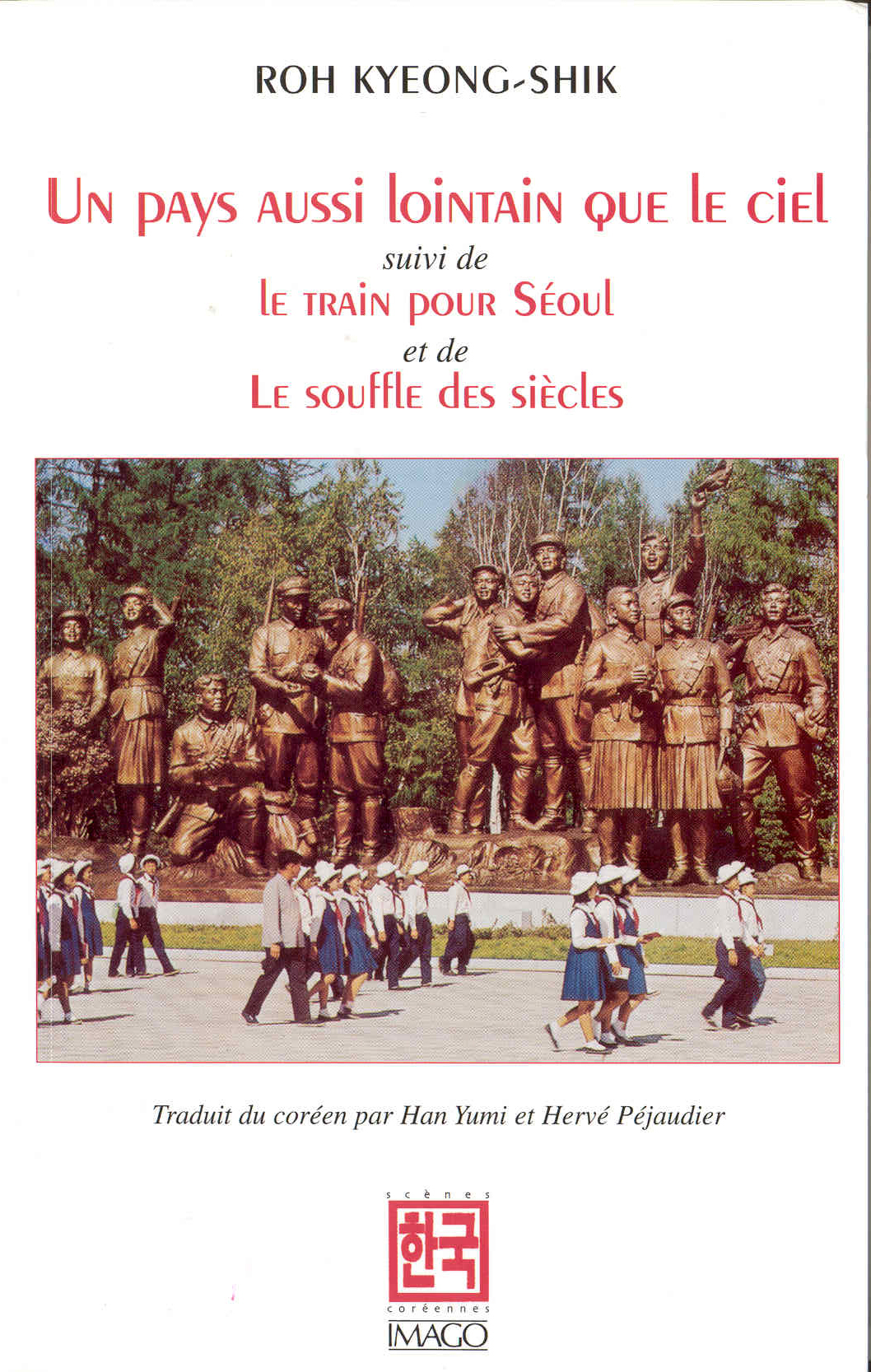
Drama희곡 | 하늘만큼 먼 나라(노경식 희곡집)(前 한국문학 번역지원사업 지원) Un pays aussi lointain que le ciel
저자 노경식 ㅣ 역자 한유미, Hervé Péjaudier에르베 페조디에
출판사 France프랑스 이마고(Imago) ㅣ 출판일 2004(2000 지원)
하늘만큼 먼 나라Un pays aussi lointain que le ciel
노경식 作/ 한유미,에르베 페조디에 共譯/ 프랑스 이마고 刊
이윤택, 오태석에 이어 프랑스에서 노경식 희곡집이 이마고(Imago) 출판사에서 발간되었다. 이 희곡집에는 표제작인 「하늘만큼 먼 나라」를 비롯하여 「서울 가는 길」 「천년의 바람」 등 세 편의 희곡이 실려 있다. 역자는 각 작품마다 작품의 특성, 내용 등에 관한 해설을 붙였다. 번역서 표지에는 북한의 한 관광지 사진을 실었다. 남북 분단으로 야기된 이산가족의 문제를 다룬 「하늘만큼 먼 나라」를 통해 프랑스인들에게 남북 분단의 현실과 아픔을 보여주고자 하였다. 파리 한국문화원에서 열린 출판기념행사에는 프랑스 극작가를 비롯한 많은 문화계 인사들이 참석하여 노경식 희곡에 대한 높은 관심을 보이기도 하였다.
Un pays aussi lointain que le ciel (The Country As Far Off as the Sky)
Roh Kyeong-Shik(Author) /Han Yumi, Hervé Péjaudier (Translators)/ France: Imago ,2004
This is a collection of plays published in France following works published by Lee Yun-taek and Oh Tae-seok. This collection includes three plays, including the title work, “The Country as Far Off as the Sky,” along with Le train pour Séoul (The Road to Seoul), and Le souffle des siècles (Winds of Eternity). The translator has added a commentary about the unique features of each play and their subject matter. On the cover of the translation there is a tourist photo of North Korea. Un pays aussi lointain que le ciel, which deals with the problem of families separated by Korea’s division, is intended to illustrate to French readers the reality and pain of the country’s division. -

Poetry시 | 사랑의 뿌리 (황동규 시선집)(前 한국문학 번역지원사업 지원) Les Racines d'Amour
저자 황동규 ㅣ 역자 Hyunja Kim-Schmidt 김현자, Thierry Gillyboeuf
출판사 France프랑스 Circé ㅣ 출판일 2000(1998 지원)
사랑의 뿌리 Les racines d'amour
황동규 作 / 김현자, Thierry Gillyboeuf 共譯 / 프랑스 Circe 刊
1958년 <현대문학>으로 등단, 시력(詩歷)으로는 불혹의 나이를 넘긴 황동규 시인은 늘 특유의 감수성과 지성을 유지하면서도 변화를 통한 거듭남을 끊임없이 추구한 시인이다. 95년 제 3회 대산문학상 수상자이기도 한 황 시인은 지금까지 세련된 지성과 감각으로 긴장감 넘치는 언어와 시의 구조를 유지하면서도 청년의 사랑과 우수, 사회 비판, 죽음과의 맞대결, 시인의 정체성 탐구로 이어지는 시세계의 변모를 보여 왔다. 『Les racines d'amour 사랑의 뿌리』에는 황동규 시인의 등단작품인 「즐거운 편지」를 비롯하여 최근작인 「바우아 데비의 그림」까지 40여년간 발표했던 열권의 시집 중에서 시인이 직접 고른 50편의 시가 실려있다.
Les racines d’amour(Loots of Love)
Hwang Tong-Gyu (Author)/ HyunJa Kim-Schmidt, Gillyboeuf Thierry (Translators)/ France: Circé/Poésie, 2000
Initiating his literature career with the 1958 publication of October in the ‘Hyondae Munhak’ (‘Modern Literature’) review and winning the Third Daesan Literary Awards in 1995, Hwang Dong-Kyu enjoys more than 40 years of activity in the literary world. He is a poet forever striving for permutation while maintaining his unique sense, sensibility, and controlled tension in his language and structure--even through his metamorphosis of poetic oeuvre from that of love and melancholy of a youth, to criticism of society, to a face à face with death, and finally, to a quest for poetic identity. Les raciness d’amour encompasses 40 years of life’s work: including the juvenelia A Happy Letter, and the more recent Baua Devi, the poet himself handpicked 50 pieces of poetry from a body of 10 volumes. -

Poetry시 | 향수 (정지용 시선집)(前 한국문학 번역지원사업 지원) Nostalgie
저자 정지용 ㅣ 역자 Lee Ka-rim 이가림, Georges Ziegelmeyer
출판사 France프랑스 L'Harmattan ㅣ 출판일 1999(1997 지원)
향수 Nostalgie
정지용 作 / 이가림, 조르주 지겔마이어(Georges Ziegelmeyer) 共譯 / 프랑스 L'Harmattan 刊
한국 현대 시사(詩史)의 흐름 속에서 현대적인 서정시 창조의 분수령을 이룬 정지용 시인의 불역 시집이다. 이 책에는 표제작인 「향수」를 비롯하여 「유리창」「바다」「카페 프란스」「백록담」등 『정지용 시집(1935)』과『백록담(1941)』에 수록된 51편의 작품이 한국어와 불어로 함께 실려 있다. 남북 분단의 소용돌이에 휘말려 남북 양측의 문학사에서 다같이 실종된 운명에 놓여 있다가 1988년에야 비로소 해금조치로 겨우 문학적 복권이 이루어진 비운의 시인 정지용은 “부족언어의 순화”를 당대 최고 수준의 기량으로 실천하였던 작가이다. 프랑스 포(Pau) 대학 교수이며 원로 시인인 장 비에스(Jean Biès)는 특별히 기고한 서문에서 “정지용은 세부적으로 인상파적이고, 유머가 넘쳐흐르며, 때때로 세련된 사실주의적 경향을 띠기도 하는 매우 참신한 감각적 이미지즘을 보여준다. 그는 특히 도교 사상과 기독교 사상을 정신적 자양으로 하면서 자연과 신에 대한 깊은 외경심을 절제된 언어로 표현하는 데 뛰어나다”고 평가했다.
Nostalgie.
Jeong Ji-Yong (Author)/ Lee Ka-Rim, Georges Ziegelmeyer (Translators). France: L’Harmattan, 1999
Poet Jeong Ji-Yong constitutes the integral fiber of contemporary lyric in the annals of modern Korean poetry. Fifty one Korean and French versions from The Collection of Poetry of Jeong Ji-Yong (1935) and Baek-nok-dam (1941) adorn its pages containing the title piece Nostalgia, Glass window, The Sea, Café France, Baek-nok-dam, and others. Caught in the partition of the peninsula, Jeong was lost to the literary history of both North and South, until the ban lifted in 1988 and the poet of misfortune was finally restored to his rightful place. He practiced the highest standard of ‘acclimation of the tribal language’ of the time. Professor (Universite de Pau) and poet Jean Bies’s preface declares, “Jeong Ji-Yong is, in detail, impressionist, humorous, and extremely original as an imagist with an occasional propensity for refined realism. Taoism and Christian thought, remarkably, nourish his soul while tempered language expresses his reverence for nature and God.” -

Fiction소설 | 소나기(前 한국문학 번역지원사업 지원) Une Averse
저자 김유정 ㅣ 역자 Choi Mikyung 최미경, Jean Noël-Juttet
출판사 France프랑스 Zulma ㅣ 출판일 2000(1997지원)
소나기 Une averse
김유정 作 / 최미경, 장노엘 주테(Jean-Noël Juttet) 共譯 / 프랑스 Zulma 刊
한국 현대문학의 선구자로서 30여편의 주옥같은 단편들을 남기고 요절한 김유정의 대표작들이 그가 세상을 떠난 지 60여년 만에 프랑스에서 번역, 출간됐다. 『Une averse 소나기』에는 표제작인 「소나기」를 비롯하여 「가을」「동백꽃」「봄봄」「솥」「아내」「정조」「산골나그네」「땡볕」등 9편이 실려있다. 김유정의 소설들은 주로 농촌 서민들의 모습을 풍부한 토속어와 해학적 수법으로 그린 단편들이다. 번역자인 최미경씨는 “풍자와 해학이 짙은 문체의 효과를 제대로 살리는 데 번역의 역점을 두었다”며 “프랑스 독자들이 한국 현대 문학의 초석을 놓은 김유정의 문학적 가치를 발견하길 바란다”고 말했다. 이 책이 발간되자 프랑스 최고의 일간지 <르 몽드 Le Monde>는 김유정의 삶과 작품세계를 자세히 소개하였고,등 문화월간지와 주간지 등도 관심을 가지고 보도했다.
Une averse(Rain Shower)
Kim Yu-Jong (Author)/ Choi Mikyung, Jean-Noël Juttet (Translators)/ France: Zulma, 2000
Kim Yu-Jong died before her time, leaving behind 30 or so brilliant gems. This pioneer of modern Korean literature sees light again after 60 years, her short stories translated and published in France: Une averse includes the title piece Rain Shower, and eight other works (Fall, Camellias, Spring, Spring, The Iron Pot, Wife, King Jongjo, The Hillside Wanderer, Scorching Heat). Rural life becomes animated through Kim Yu-Jong’s humor and language; the translator Choi Mikyung has focused on recreating the same humorous and satirical effect, in hopes that French readers will discover the literary value of this seminal author. Instantly upon its release, the leading French newspaper, ‘Le Monde’ published a detailed report of Kim Yu-Jong’s life and literary oeuvre; newsweekly and culture magazines like ‘BCLF’ also took interest and followed suit. -

Fiction소설 | 시장과 전장(前 한국문학 번역지원사업 지원) Le Marché et le Champ de Bataille
저자 박경리 ㅣ 역자 Kwon Soonja 권순자, Olivier Ikor
출판사 France프랑스 Ecriture ㅣ 출판일 1997(1994 지원)
시장과 전장 Le march et le champ de bataille
박경리 作 / 권순제, 올리비에 이코르(Olivier Ikor) 共譯 / 프랑스 Editions de l'Archipel 刊
한국소설계의 거장(巨匠)인 박경리의 장편소설 『시장과 전장』은 『토지』에 이어 두 번째로 프랑스에 소개되는 소설이다. 한국현대사에 있어 가장 지난했던 시절인 한국전쟁 시기를 생생히 담고 있다. 한국전쟁의 참상 속에서도 인간의 숨소리가 느껴지는 시장, 살아있음이 확인되는 유일한 통로인 전장 속의 시장을 사실적으로 묘사하고 있어 한국적 정서의 발로를 확인할 수 있게 해 준다. 1964년 12월에 나온 이 소설은 전쟁과 이데올로기, 민중 등에 대해 60년대 작품으로서는 드물게 객관적이며 진보적인 기록과 해석을 남긴 소설로 평가받고 있다.
Le marché et le champ de bataille
Park Kyong-Ni (Author)/ Kwon Soon-Jai, Olivier Ikor (Translators)/ France: Écriture, 1997
The second Park Kyung-Li to make entry into France following Toji (‘The Land’), Le marche et le Champ de Bataille incorporates the most difficult time in the history of modern Korea: the period of the Korean War. The market place provides sole opportunity for life confirmation: Park depicts a very real, very Korean picture of the market place where human breath, even during the horror of war, is felt. Rare for a work from the 60’s (the original text being released in December 1964), objective and advanced records and interpretations are provided on the subject of war, ideology, and the people. -

Fiction소설 | 별과 같이 살다(前 한국문학 번역지원사업 지원) La Petite Ourse
저자 황순원 ㅣ 역자 Choi Mikyung 최미경, Jean Noël-Juttet
출판사 France프랑스 Zulma ㅣ 출판일 1997(1995 지원)
별과 같이 살다 La Petite Ourse
황순원 作 / 최미경, 장노엘 주테(Jean-Noël Juttet) 共譯 / 프랑스 Zulma 刊
이 소설은 원로 작가 황순원의 첫 장편소설이다. 일제시대를 지나며 곰녀라는 인물이 겪게되는 삶과 죽음의 한계상황이 역사적 국면과 맞물리면서 자아와 세계의 대결양상으로 옮아가는 과정이 극명하게 표현되고 있다. 한국문학의 비중있는 모티브이기도 한 일제 강점기란 화두를 던져 그 속에서 살아남은 한민족의 좌절과 극복의 장면을 담고 있는 이 소설은 한국문학과 역사에 사실적으로 접근할 수 있는 기회를 제공하고 있기도 하다. 프랑스의 시사주간지 <누벨옵세르바퇴르>는 이 책을 소개하면서 "조용한 아침의 나라 한국에서온 이 소설에는 초자연적인 힘으로 이 세계의 사악한 현상들을 바꾸어 보려는 신화적 인물들이 넘친다"고 평했다. -

Fiction소설 | 영원한 제국(前 한국문학 번역지원사업 지원) L'Eternel Empire
저자 이인화 ㅣ 역자 Tcho Hye-Young 조혜영
출판사 France프랑스 Maisonneuve et Larose ㅣ 출판일 2000(1995 지원)
영원한 제국 L'Éternel Empire
이인화 作 / 조혜영 譯 / 프랑스 Maisonneuve & Larose 刊
1993년 발표된『영원한 제국』은 정조 24년(1800) 1월 19일 하룻동안 규장각에서 일어난 의문의 살인사건을 시작으로 비서(秘書)인 영조의 『금등지사』를 찾기 위한 당대 노론과 남인의 세력다툼, 정조의 갈등을 그린 역사 추리소설이다. 조선 헌종 1년(1835)에 쓰여진 이인몽의 『취성록(聚星錄)』을 토대로 쓴 이 소설은 시경(詩經) 빈풍(豳風)편에 등장하는 시 「올빼미」를 둘러싼 검서관의 살인 사건과 갑작스런 정조의 죽음에 대한 정치적 음모를 속도감 있게 묘사하여 베스트셀러가 되었고 영화 및 연극으로도 제작돼 좋은 반응을 얻기도 하였다. 번역자 조혜영 씨는 “『영원한 제국』은 프랑스 독자들이 선호하는 역사소설인데다 복잡한 심리묘사보다는 일련의 사건들을 이야기 위주로 박진감있게 그리고 있어 이곳 독자들의 성향에 잘 맞을 것”이라고 설명하고, “유교가 아시아의 문화적 배경이라고 알려진 프랑스 사회에 조선시대 유교가 정치, 문화, 사회에 끼친 영향을 구체적으로 보여줄 수 있을 것”이라고 밝혔다.
L’Éternel Empire
Yi In-Hwa (Author)/ Tcho Hye-Young, Jacques Allais (Translator)/ Maisonneuve & Larose, 2000
Released in 1993, Eternal Empire recounts a day beginning with a mysterious death on 19 January 1800 (24th year of King Jongjo’s reign) in the Kyujanggak (ancient inner library). It is a historical-detective novel depicting the power struggle between Jongjo and his subjects of an old faction and the second faction in the race to recover Yongjo’s secret book Kum-Deung-Ji-Sa. Based on the 1835 (1st year of Joseon Dynasty King Honjong’s reign) novel Chui-Sung-Rok by Yi In-Mong, the storytelling is fast-paced, involving the conspiracy of King Jongjo’s sudden death and the murder of a librarian surrounding the poem ‘Owl’ found in the ‘Binpung’ canto of the Book of Songs. An instant bestseller, its allure has warranted numerous movie and play adaptations. The translator Tcho Hye-Young explains, “L’Eternel Empire will appeal to French readers preferring historic fiction and true-to-life events rather than a complicated psychological delineation,” and added, “the French people who have heard Confucianism to be the basis on which Asian culture flourished can now benefit from a more concrete indication of the extent of Joseon Confucian influence spread throughout politics, culture and society.” -

Fiction소설 | 달궁(前 한국문학 번역지원사업 지원) Talgung
저자 서정인 ㅣ 역자 Maryse Bourdin, Lee In-Sook 이인숙,Kim Kyunghee 김경희
출판사 France프랑스 쇠이유(Seuil) ㅣ 출판일 2001(1995 지원)
달궁 하나 Talgung
서정인 作 / 이인숙, 김경희, 마리즈 부르뎅(Maryse Bourdin) 共譯 / 프랑스 Seuil 刊
서정인의 『달궁』은 1985년 9월 <한국문학>에 그 첫 번째 묶음이 발표된 이후 <세계의문학>, <문학사상>, <소설문학> 등 여러 문예지와 종합지를 통해 1989년 12월까지 발표되었으며, 그 첫권 『달궁 하나』가 1987년에, 『달궁 둘』이 1988년에 단행본으로 간행된 연작소설이다. 연작소설이라고는 하지만 형식이 특이한 이 작품은 소제목이 붙은 수많은 부분들의 집합인데 각 부분은 200자 원고지 10장에서 15장 정도이다. 불어로 번역, 소개된 『달궁 하나 Talgung』의 경우 86개의 에피소드들의 집합니다. 『달궁』은 6.25 전쟁으로 고아가 된 인실이의 파란만장한 삶의 궤적을 그린 작품으로 한국의 역사와 문화는 물론 한국인의 독특한 정서를 담고 있어 서구 독자들이 한국을 이해하는 데 도움이 될 것이다.
Talgung
Su Jung-In (Author)/ Lee In-Sook, Kim Kyunghee, Maryse Bourdin (Translators)/ France: Seuil, 2001
‘Literature of Korea’ carried the first installment of Talgung in September 1985, and until December 1989, ‘World Literature,’ ‘Literary Thought,’ ‘Fictional Literature’ printed serials. The first independent volume Talgung I came out in 1987, Talgung II the following year, making it a serial novel. The format is unusual: each subtitled piece of ten to fifteen pages with 200 words on each page assembles to make up a book. In the case of the French-translated Talgung I, there are 86 episodes. In tracing the burdened life of Insil orphaned during the Korean War, this work contains not only Korean history and culture but also sentimentality unique to Koreans: her persuasive and morally enlightened novel makes a winning entrance for Su into Western readers' imaginations. -

Fiction소설 | 흰 옷(前 한국문학 번역지원사업 지원) L'Harmonium
저자 이청준 ㅣ 역자 Patrick Maurus, Son Mi-Kyung 손미경
출판사 France프랑스 Actes Sud ㅣ 출판일 2001(1995 지원)
흰 옷 L'Harmonium
이청준 作/ 강거배,손미경,파트릭 모뤼스 共譯/ 프랑스 악트쉬드 刊
『흰옷』은 분단상황의 대립과 갈등을 따뜻하고 아름다운 정서로 풀어낸 이청준 문학의 진수다. 제 2회 대산문학상을 수상한 이 작품은 해방 이후 이념의 대립이 극심하던 때를 배경으로 하여 숙명과도 같은 제 삶의 상처를 떠안은 과정과 解怨을 보여주고 있다. 애초 서강대 불문과 교수였던 故 강거배 교수와 파트릭 모뤼스(번역가, 파리 7대학교수) 씨가 번역했으나, 강교수가 갑작스럽게 작고함에 따라 모뤼스가 주번역자가 되어 손미경(번역가) 씨와 함께 번역을 마쳤다. 1995년 지원.
L'Harmonium(White Clothes)
Yi Chong-Jun(Author)/Kang Go-Bae, SonMi-Kyung, Patrick Maurus(Translator)/France: Actes Sud,2001
L'Harmonium resolves the partition antagonism and conflict with warmth and beauty: thecore of author Yi Chong-Jun's literature. Well deserving of the Second Daesan Literary Award, this book shows the process and absolution of a life, scarred and as uncontrollable as destiny, in a time of post-liberation when the clash of ideologies was at its worst. Publishing Yi Chong-Jun and Yi Mun-Yol in the early 1990's, and thereby lauching both authors to the center of the Frenchliterary scene, Actes Sud had ceased, with Pour L'Empereur in 1998, futher publications of Korean Literature. This book proudly announces the return to that bond as the first Anthologie de la literature Coreenne to be published in three years. -
Drama희곡 | 문제적 인간 - 연산(前 한국문학 번역지원사업 지원) Yônsan
저자 이윤택 ㅣ 역자 임혜경,Cathy Rapin카티 라팽
출판사 France프랑스 라신(Racine) ㅣ 출판일 (1996 지원)
-

Poetry시 | 산정묘지(前 한국문학 번역지원사업 지원) Une tombe au sommet
저자 조정권 ㅣ 역자 Daekyun Han 한대균,Gilles Cyr질 시르
출판사 France프랑스 시르세(Circé) ㅣ 출판일 2000(1996 지원)
산정묘지 Une tombe au sommet
조정권 作 / 한대균, Gilles Cyr 共譯 / 프랑스 Circe 刊
조정권 시인의 다섯 번째 시집으로 1991년 김수영문학상과 소월시문학상을 동시에 수상한 『산정묘지』는 일정한 사회적 공간과 그 곳에 갇혀버린 사상이나 습관의 틀을 벗어나 광활하고 드높은 세계에 존재하는 강인하고 맑은 정신을 담고 있다. 특히 이 시집에서는 문학의 본질적인 존재 의미에 대한 시인의 깊은 성찰도 엿볼 수 있다. 철학과 종교를 시적 언어로 표현함으로써 결국 시적 메시지는 존재에 대한 보편적인 가치를 추구해야 한다는 시인의 새로운 소명을 독자들에게 선언하고 있다. 『Une tombe au sommet 산정묘지』는 출간되자마자 <르 몽드 Le Monde> <리베라시옹 Libération> 등 현지의 유력 일간지와 국영 라디오 방송 <프랑스 엥테르 France Inter>에 소개되는 등 좋은 반응을 얻었다.
Une tombe au sommet
Cho Jung-Kwon (Author)/ Han Dae-Kyun, Gilles Cyr (Translators)/ France: Circe, 2000
Fifth in his succession of poetic anthology, and recipient of both 1991 Kim Soo-young Literary Award and Sowol Literary Award for Poetry, this work is an escape from a fixed social or conventional space and any thought imprisoned there, to a higher, wider plane of strength and clarity. The poet’s deep self-examination on the question of literature, in particular, illuminates this selection. Articulating philosophy and religion using language full of feeling, the ultimate message is the new summoning for that poetic language to pursue a universal value of being. Une tome au sommet received immediate praise upon release from major newspapers ‘Le Monde,’ ‘Liberation,’ and radio programs such as ‘France Inter.’ -

Poetry시 | 영원 속의 오늘 (구상 시선집)(前 한국문학 번역지원사업 지원) Aujourd'hui l'éternité
저자 구상 ㅣ 역자 여동찬, 윤석만
출판사 France프랑스 디페랑스(Différence) ㅣ 출판일 1997(1996 지원)
영원 속의 오늘 Aujourd'hui l' ternit
구상 作 / Roger Leverrier, 윤석만 共譯 / 프랑스 La difference 刊
이 시집은 구상시인 시세계가 가장 잘 노정되어 있는 시 25편의 원문과 불역을 나란히 게재하고 있다. 외재론적인 선율과 시각적 심상에 의존한 기존의 시에서 벗어나 존재에 대한 인식이나 역사의식 등을 시의 주제로 삼고 있는 구상 시인의 시는 한국문학의 뿌리가 된 역사적 상황과 전 통 및 문화를 자연스럽게 형상화 하고 있다. 이 시집은 프랑스의 저명한 시전문출판사인 디페랑스의 '세계시인선' 시리즈의 212번이다.
Aujourd’hui l’éternité(Today in Eternity)
Ku Sang (Author)/ Roger Leverrier, Yoon Suk-Man(Translator)/ France: La difference, 1997
This bilingual edition is a tapestry of 25 poems most revealing Ku Sang’s world of poetry. Departing from the existing poetry of externalist melody and visual image, Ku Sang meditates on metaphysics and the historical conscious, reifying a piece of historical circumstance, tradition and culture that has become the heart of Korean literature. Aujourd’hui l’eternite is numbered 212 in the Anthologie de la Poesie series. -

Fiction소설 | 나무들 비탈에 서다 (前 한국문학 번역지원사업 지원) Les Arbres sur la Falaise
저자 황순원 ㅣ 역자 Young-Kyu Song 송영규, Geneviève T. Park
출판사 France프랑스 Maisonneuve et Larose ㅣ 출판일 1999(1993지원)
나무들 비탈에 서다 LES ARBRES SUR LA FALAISE
황순원 作 / 송영규, 즈느비에프 탐박(Geneviève T. PARK) 共譯 / 프랑스 Maisonneuve et Larose 刊
이 책은 한국전쟁을 배경으로 한 원로작가 황순원의 장편소설이다. 해방 이후의 혼란과 한국전쟁의 발발, 휴전에 이르기까지 일련의 역사적 사건들 속에서 상처받은 사람들의 이야기를 담고 있다. 군인이 되기에는 너무 심약한 나머지 순수에의 꿈과 삶이라는 현실 사이에서 방황하는 동호, 자신의 범죄에 대한 회한에 사로잡혀 알코올에 탐닉하며 무력하고 소외된 삶을 살아가다 자신의 의사에 반해 살인을 저지르고 무기징역형에 처하는 현태, 자신이 쏘아 죽인 부역자(附逆者)의 환영에 쫓기다 신앙마저 져버리고 정신이상에 걸리는 선우 등 암울한 시대를 살아가는 젊은이들의 고통과 상처를 사실적으로 그리고 있다.
Les arbres sur la falaise
Hwang Sun-Won (Author)/ Song Young-Kyu, Geneviéve T. Park (Translators)/ France: Maisonneuve & Larose, 1999
Veteran writer Hwang Soon-Won wrote Tress on Cliff with the Korea War in mind. This full-length novel refers to the realistic story of youth scarred by the dark historical events of post-independence chaos, the sudden outbreak of Korean War, and the coming armistice: Dong-ho, too feeble-minded to be a soldier, wanders between dreams of innocence and the harsh reality of life; Hyeon-tae, absorbed in remorse for the crimes he has committed, dissolves himself in alcohol until one day he kills against will and faces life imprisonment; Seon-u, haunted by the ghost of the traitor he shot dead, denounces his faith and falls into madness. -

Fiction소설 | 마당 깊은 집(前 한국문학 번역지원사업 지원) La Maison dans la Cour du Bas
저자 김원일 ㅣ 역자 J. Byon-Ziegelmeyer, Mine Hisik 민희식
출판사 France프랑스 L'Harmattan ㅣ 출판일 1995(1993 지원)
마당 깊은 집 LA MAISON DANS LA COUR DU BAS
김원일 作 / 민희식, 변 지겔마이어(Byon Ziegelmeyer) 共譯 / 프랑스 L'Harmattan 刊
한국의 중진작가 김원일의 장편소설 『마당 깊은 집』은 새로운 시각에서 한국전쟁을 조명한 소설이다. 전쟁이라는 프리즘을 통해 인간의 삶의 모습과 전쟁의 피폐상을 그린 작품으로 한 집에 여러 가족이 모여사는 피난지에서 나타나는 가난과 전쟁, 그리고 삶의 군상을 한 가족을 통해 잘 형상화 하고 있다. 불어로 번역된 이 작품은 원문과 함께 작가와 등장인물 및 작품의 배경이 되는 지명들을 별도로 소개하는 등 불어권 독자들의 이해를 돕고 있다. 이 책을 출판한 아르마탕 출판사는 90년대 들어 한말숙장편소설 『아름다운 영가 Le Chant M lodieux Des mes』, 『이가림시선집 Le Front Contre La Fen tre』 등의 한국문학작품을 집중적으로 펴내고 있다.
La maison dans la cour du bas
Kim Won-Il (Author)/ Min Hee-Shik, J. Byon-Ziegelmeyer (Translators)/ France: L’Harmattan, 1995
The full-length novel La maison dan la Cour du Bas by the celebrated Kim Won-Il surfaces a different facet of the Korean War: poverty and war circle the lives of many refugee families living under one roof, as transpired through the prism of ‘war.’ French readers will find necessitous supplementary material such as the original text, the outline of the author, characters, and places mentioned within. Korean literature receives much interest by the L’Harmattan: they continue to publish many Korean Literary works like Han Mal-Suk’s Le Chant Mélodieux Des?mes in the 90s, and Le Front Contre La Fen?tre. -
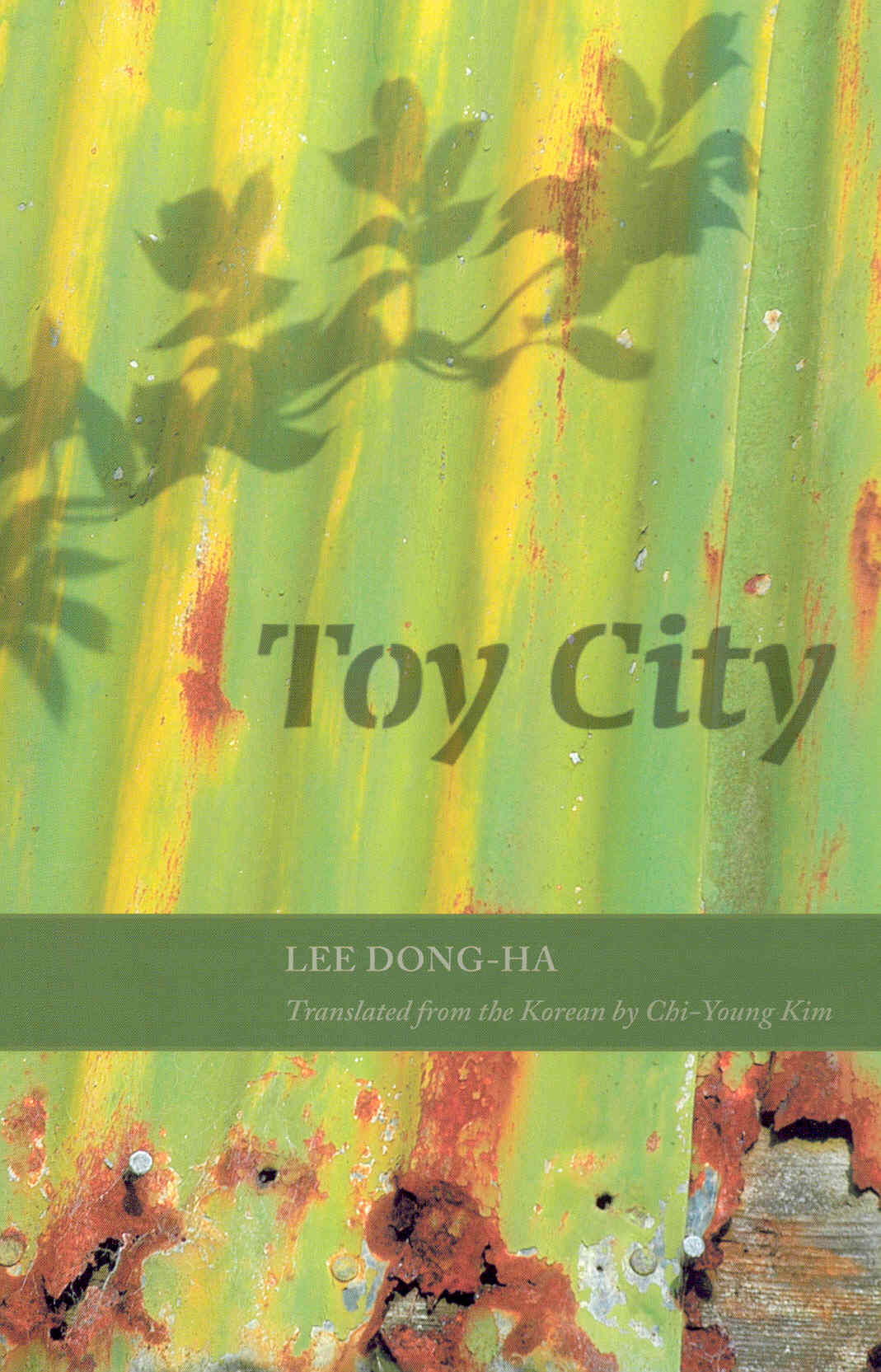
Fiction소설 | 장난감도시(前 한국문학 번역지원사업 지원) Toy City
저자 이동하 ㅣ 역자 김지영
출판사 USA미국 영&영(Yeong&Yeong) 출판사 ㅣ 출판일 2007(2005 지원)
자의식을 예리하게 그리는 작가 이동하의 연작장편 『장난감 도시』의 영역판 『Toy City』(미국 Koryo Press 刊)를 미국에서 출간되었다. 『Toy City』를 출간한 Koryo Press는 미국 미네소타에 있는 동양 서적 전문 출판사 Yeong&Yeong Book Company가 한국 서적을 전문으로 출판하기 위해 설립한 자회사이다. 작가의 자전적 체험이 가미된 『장난감 도시』는 초등학교 4학년 주인공 가족이 고향에서 도시의 판자집 동네로 이주해 살면서 겪게 되는 1년간의 궁핍한 생활을 그린 작품으로 6․25 전쟁의 특수상황에서 가난과 폐허에 직면한 난민들이 겪는 치열한 생존의 고투를 다룬 이동하의 대표작이다. -
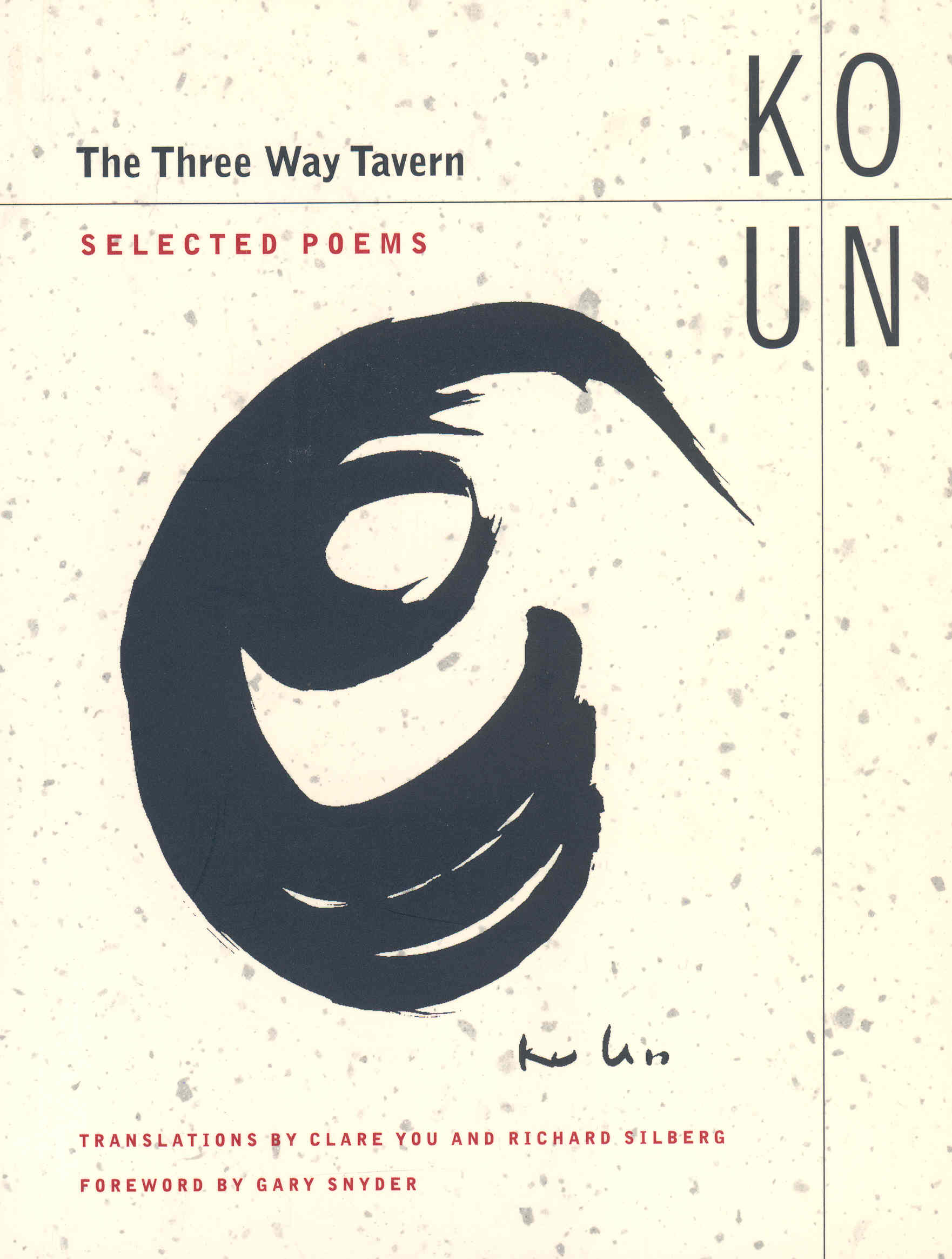
Poetry시 | 삼거리 술집(고은 시선집)(前 한국문학 번역지원사업 지원) The Three Way Tavern
저자 고은 ㅣ 역자 임정빈,Richard Silberg리차드 실버그
출판사 USA미국 캘리포니아대 출판부 ㅣ 출판일 2005(2005 지원)
고은 시선 The Three Way Tavern
고은 作/ 클레어 유·리차드 실버그 共譯/ 미국 University of California Press 刊
캘리포니아대 버클리의 클레어 유 교수가 오랜 공을 들여 번역 및 출판 작업에 힘써 캘리포니아대 출판부에서 소개된 고은 시인의 영역 시집이 ‘삼거리 선술집’이란 제목으로 출간되었다. 미국의 선(禪) 시인이라 불리며 시인과 오랜 친분을 나누고 있는 개리 스나이더가 서문을 쓰고 미국의 계관시인 로버트 하스가 서평을 써 출간 전부터 기대를 모았다. 로버트 하스는 서평에서 “고은은 21세기의 매우 중요한 시인이며, 이 시집의 번역은 매우 신선하고 활기차다”고 평했다. 캘리포니아대는 이 책의 출판을 기념하여 내년 중에 시인을 초청하여 낭독회를 개최할 예정이다. 2005년 지원.
The Three Way Tavern
Go Un(Author)/Clare You, Richard Silberg (Translator)/USA :California,2005
Ko Un, the preeminent Korean poet of the twentieth century, embraces Buddhism with the versatility of d master Taoist sage. His verse-vivid, unsettiling, down to earth, and deeply moving-ranges from the short lyric to the vast epic and draws from a poetic reservoir filled with memories and experiences ranging over seventy years of South Korea’s tumultuous history from the Japanese occupation to the Korean war to democracy. This collection, an essential sampling of his poems from the last decade of the twentieth century, offers in deft translation, as lively and demotic as the origience of English-speaking readers. -
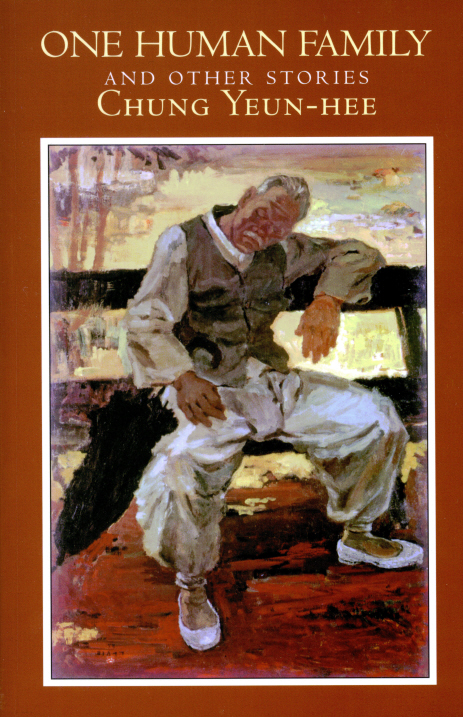
Fiction소설 | 정연희 단편집(前 한국문학 번역지원사업 지원) One Human Family and Other Stories
저자 정연희 ㅣ 역자 이현재
출판사 USA미국 화이트 파인(White Pine) ㅣ 출판일 2008 (2001 지원)
정연희 단편집One Human Family and Other Stories
정연희 作/ 이현재 譯/ 미국 White Pine 刊
한 시대를 풍미했던 소설가 정연희의 대표단편 5편이 영어로 번역돼 미국 화이트 파인 출판사에서 출간되었다. 재미 번역가 이현재 씨가 번역한 이번 소설집은 정연희 문학세계의 중후반기를 대표하는 단편을 엄선해 수록한 것이다. 이화여대 3학년에 재학 중 동아일보 신춘문예에 당선되며 화려하게 데뷔한 정연희는 초기에는 주로 인본주의적 실험소설을, 후기에는 기독교적 세계관에 기반한 구도자적 소설을 주로 펴냈다. 이번 소설집에는 「Baloons 풍선」「Into the Desert 사막을 향하여」「Last Bus 막차요 막차」「Night of the Owl 孤閑」「One Human Family 우리가 사람일세」 등 70년대 후반 이후 발표된 5편의 단편이 수록돼 있다. 책을 출간한 화이트 파인 출판사는 미국 뉴욕주 버팔로에 위치한 출판사로 이미 17권의 한국문학작품을 번역, 출간해 미국의 대표적인 한국문학 전문 출판사로 손꼽힌다. 2001년 지원. -
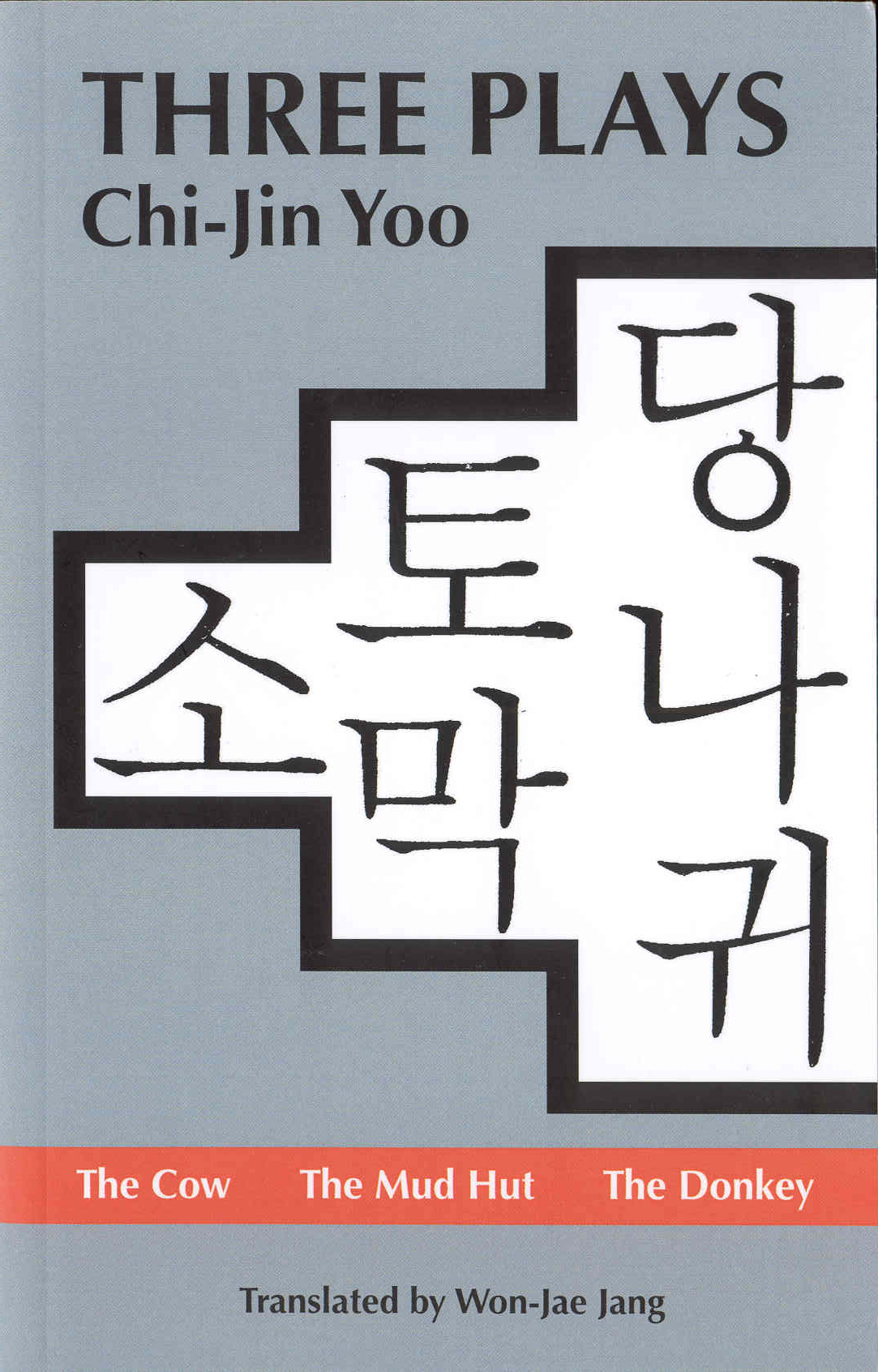
Drama희곡 | 유치진 희곡집(前 한국문학 번역지원사업 지원) The Cow, The Mud Hut, The Donkey
저자 유치진 ㅣ 역자 장원재,Richard Cave리처드 케이브
출판사 USA미국 콜린 스마이스(Colin Smythe) ㅣ 출판일 2005(2001 지원)
유치진희곡집 Three Plays: Chi-Jin Yoo
유치진 作/ 장원재,리처드 A. 케이브 譯/ 영국 Colin Smythe 刊
1931년 이하윤, 정인섭 등과 시작한 ‘극예술연구회’의 리더이자 한국 현대희곡을 대표하는 유치진 희곡집의 영역판이다. 유치진은 「버드나무 선 동리 풍경」(1933), 「빈민가」(1934), 「소」(1935) 등 식민지 현실을 사실적으로 극화하는 걸작들을 다수 발표하였다. 이 번역서에는 그의 농촌 삼부작 중 「토막」 「소」의 두 편과 「당나귀」 등 세 편의 희곡이 수록되었다. 2001년 지원.
Three Plays:Chi-Jin Yoo
Yu Chi-Jin(Author) /Jang Won-Jae,Richard A. Cave(Translators)/UK:Colin Smyth,2005
Three plays consists of The Cow, The Mad Hat, and Donkey. The release of A Piece ensured Yoo Chi-Jin a place as a representativ playwright for the Society for the Study of Dramatic Arts, started in 1931 by himself and others including Yi Ha-Yun and Jeong In-Seop. His following works, The Scenery of a Village with Wilows(1993), The Slums(1934), and The Cow(1934) exemplify him as an influential national writer who dramatizes the reality of colonialism with alarming accuracy. pressure form the Japanese Government-General forced the Society to disband and in response the Modern Theatre was founded in 1941. Other works by Yoo include Bukjindae, Heilong River, and Jujube Tree. This translation will list the so called rural trilogy', which includes A piece, The Scenery of a Village with Willows and The Cow.

